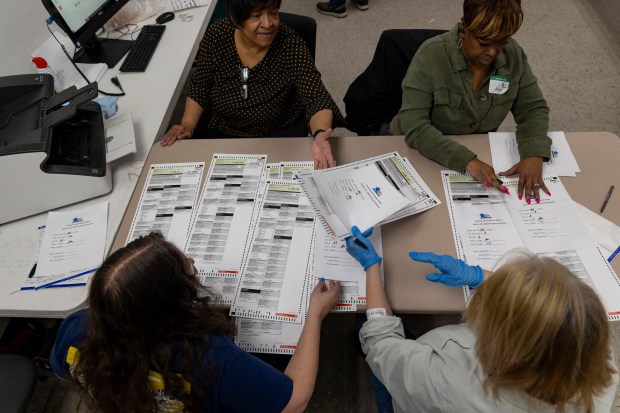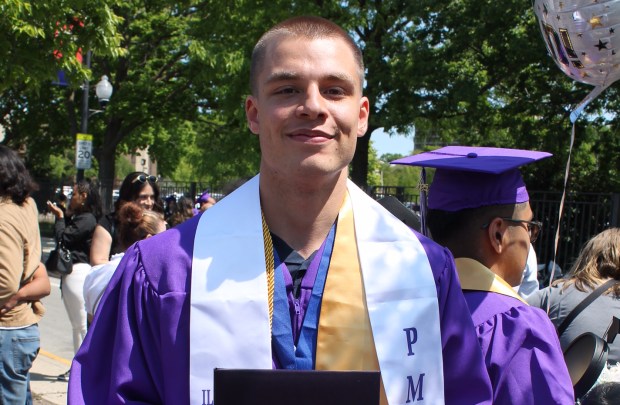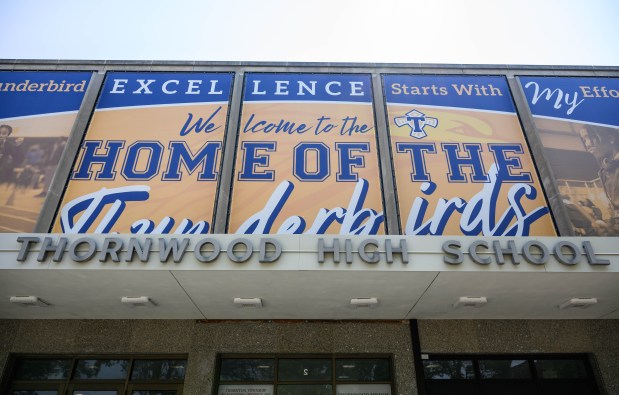With the universe of returning mail-in ballots from the city and suburbs slowing considerably, retired Appellate Justice Eileen O’Neill Burke’s lead dipped below 1,700 votes Monday over university lecturer and government official Clayton Harris III in the Democratic primary for Cook County state’s attorney.
Harris on Monday afternoon registered just 1,643 votes behind O’Neill Burke as a wave of nearly 5,300 Democratic mail-in ballots from the city and suburbs were tallied by the Chicago Board of Elections and Cook County Clerk’s office. Harris won 56% of the new batch of mail-ins from the city and 52% of the new suburban ballots, a lower percentage than he’d been getting from city mail-in ballots over the weekend where he cut O’Neill Burke’s lead from nearly 6,800 votes to 2,015.
O’Neill Burke’s lead was out of a universe of more than 522,000 counted ballots in the race to replace outgoing two-term Cook County State’s Attorney Kim Foxx.
Tuesday marked the first tallying of votes since Thursday from suburban Cook County where O’Neill Burke has led by a roughly 54% to 46% margin since Election Day. Harris’ lead among the 317,000 city voters whose ballots have been counted so far is about 52% to 48%.
“As the votes are processed and the margin in this race continues to shrink, we are watching closely and evaluating our options,” Harris campaign manager Alaina Hampton said Monday in a statement. “We will determine our next steps when appropriate.”
O’Neill Burke’s campaign has remained optimistic throughout, even as her lead has been steadily trimmed.
In an email sent to supporters before Tuesday’s results, O’Neill Burke’s campaign said she expected the vote count to tighten but when it’s complete, “we believe Eileen O’Neill Burke will be our next Cook County State’s Attorney. That being said, this is going to be a very close race that will take several more days to complete.”
Over the weekend, both O’Neill Burke’s and Harris’ campaigns expressed frustration but encouraged patience when the Chicago Board of Elections reported they had miscalculated the universe of mail ballots left to be tallied.
The board’s spokesman, Max Bever, initially reported there were 7,009 vote-by-mail ballots received via the U.S. Postal Service on Election Day. That number incorrectly excluded 9,143 mail-in ballots received late in the day on March 18. The mistake was a communications error made in haste, Bever said, taking responsibility.
On Monday, Bever reported another miscalculation, this time in the reported number of provisional ballots on hand. The board initially reported there were 2,882.
“Unfortunately, a Board staff member initially logged an incorrect number received on Election Day,” Bever said Monday. Staff recently performed an updated manual count and reported there were 1,896 Election Day provisional ballots and 95 from early voters and at the city’s vote center.
Provisional ballots are not counted until the very end of the tabulation process, which in this election will be April 2. Most provisional ballots are cast under special circumstances such as if a voter forgot to bring their identification, voted during court-ordered extended hours, at an incorrect precinct, or if a voter requested a mail-in ballot but changed their minds and decided to vote in person.





